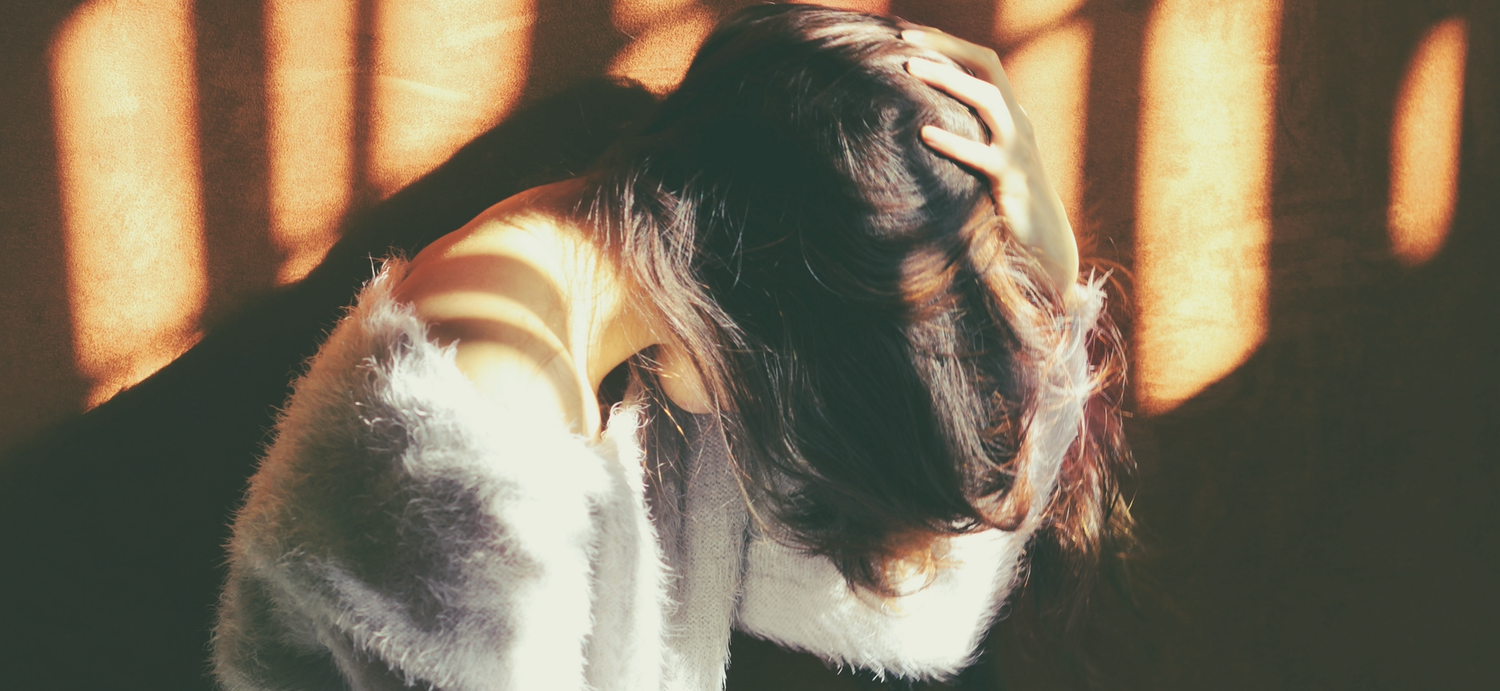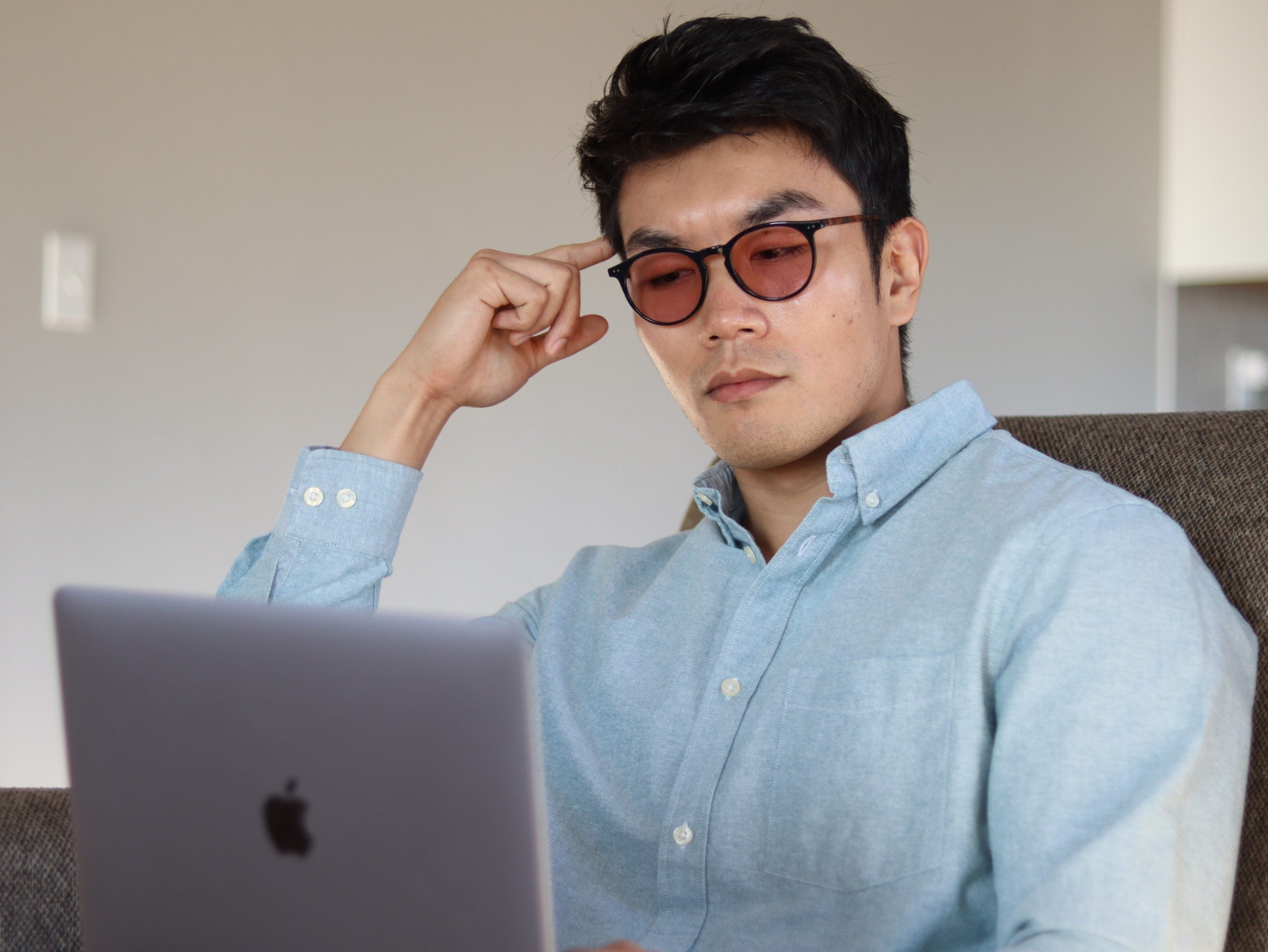If you have ever had a concussion, you might have personal experience with post concussion and migraine. You might feel like your head injury placed you on a path to more frequent headaches or migraine attacks, even after your healed from the trauma. In fact, your trouble with post concussion and migraine may have started long after your recovery.
Recent research actually reveals a post-concussion and migraine connection — not just immediately after the event, but long-term. So even if you had never had a migraine before that event, perhaps you started suffering from them long afterward. If this sounds like you, you’re not alone. Migraine is common following a concussion, as is post-traumatic headache, or PTH (which has symptoms indistinguishable from migraine).
Sara’s Post Concussion and Migraine Glasses Experience
As those who have suffered a concussion can attest, it’s not like having a common virus, where you typically recover without lasting effects. While most people recover from the initial symptoms of a concussion within about a month, about 20% endure more persistent effects, with symptoms lasting more than 6 weeks. These symptoms may include:
- nausea
- headaches
- problems with vision and balance
- fatigue
- difficulty thinking and concentrating
- mood changes
- changes in sleeping habits
- increased sensitivity to sound and light

Sara is one of those 20%. The lingering effects of her concussion have left her more sensitive to sound and light. She writes:
“Concussion update: The holidays were exhausting. It was great to have family come to visit and it was great to go to see family… but both experiences left me exhausted and lethargic. The truth is my capacity has been increasing a lot but my lack of energy and dislike of any bright lights each and every morning remains the same even after 9-10 hours of decent sleep.”
“…my eyes can’t handle being in a brightly lit place let alone concentrating on screen for more than an hour. I have lots of coping mechanisms but only because I’m forced to. I have decreased my visits to
from 5 days a week to 4 days a week… My Occupational Therapists say my eyes are tracking more normally in recent days. I’m feeling more and more normal. I drive. I can sit through a staff meeting and engage and participate fully. I can handle being around crinkly bags and other annoying background noises even though they make my hairs stand on end (even with earplugs in). I can watch TV, as long as there isn’t a ton of movement on the screen. But my eyes still burn at the end of the day or in the middle of the day after pushing myself. And the winter sun on the white snow and wet roads is sheer torture. Day by day. Week by week. Month by month. This isn’t the quick recovery I was hoping for but it’s what my recovery looks like whether I like it or not.”
Thankfully, Sara has found tools such as earplugs and Axon Optics powered by Avulux Migraine & Light Sensitivity lenses that help her cope as she continues to heal.
“I am so grateful for adaptive aids. These earplugs make life in loud settings manageable for me. I didn’t imagine they would be such a consistent use item when I purchased them back in mid-November but it’s amazing how much noise reduction helps… Between these and Axon Optics glasses and hats I can tolerate much more than I would be able to in this time of post concussion recovery.”
Some sufferers report post concussion migraine for years after their injury. One example is Sophie who after more than 7 years is still having symptoms from her concussion, but finds Axon Optics migraine glasses helpful. She says:
“I love these glasses. They make headaches/migraines and light sensitivity much more bearable! I got a concussion 7 1/2 years ago and still have problems from it today. I will be purchasing a second pair just in case anything happens to this pair because I do not want to go without them, even for a day.”
Sara just sent us an update today to let us know how it’s going with her Axon Optics glasses. She wrote:

“When I don’t wear my Axon Optics glasses, my eyes ache in any bright or artificial light even after only a few minutes of exposure. When I wear my glasses (which I do all the time), I can tolerate hours of artificial lights. It’s a real game changer for the level of tolerance I have at this stage of my recovery.”
Cognitive Effects of Concussion
If you’ve had a head injury, you could also suffer cognitive effects. A study published in the American Journal of Sports Medicine evaluated 138 male high school football players and evaluated them after head injuries. Some had post-traumatic migraines with headache, nausea and light sensitivity. Others had headaches without other symptoms. The 3rd group had no headache or post-traumatic migraines. The students were given the Immediate Post-Concussion Assessment and Cognitive Test (ImPACT) to assess their cognitive performance and symptoms at baseline, 1-7 days after the injury, and 8-14 days after the injury.
At 8-14 days past the injury, the group reporting post-traumatic migraine, including headaches, nausea and light sensitivity, performed worse on verbal memory testing than the post-traumatic headache-only group. The post-traumatic migraine group also performed worse on visual memory, reaction time, and symptoms than the other two groups at both 1-7 and 8-14 days post-injury. The post-traumatic migraine group was 7.3 times more likely to have protracted or lengthened recovery than the no-headache group, and 2.6 times more likely than the headache-only group.
This study seems to indicate that headache is not the only indicator of reduced cognitive performance post-concussion, but that other symptoms like nausea and light sensitivity may also be factors in reduced cognitive performance after suffering a head injury. If you suffer from photophobia and have ever had a head injury, maybe you have experienced this for yourself.
Post Concussion Headaches
Post concussion and migraine is actually sort of a two-edged sword. A 2018 study published in PubMed found that, “Migraine may predispose to concussion, and migraine and post-traumatic headache are common following concussion.” So if you already suffer from migraines, you may actually be predisposed to getting a concussion with a head injury. But if you get a concussion, there’s also a chance you’ll end up with migraines. This overlap can make accurate diagnosis following an injury more difficult, which could result in delayed or inappropriate treatment. This could mean a delayed return to sports or other activities that present elevated risk of head injury.
Not only that, but if you’re predisposed to migraines, suffering a head injury could make the problem worse. Dr. Joel Saper, founder and director of the Michigan Headache and Neurological Institute, said in a 2018 interview:
“If you have the predisposition to migraine, which is a genetic disorder, you’re predisposed throughout your lifetime. A head injury is associated with the activation or worsening of that headache.” In order to have this worsening effect, your head injury doesn’t have to be a bad one. Dr. Saper continued, “head injuries that are mild and moderate, not so much severe, are often more commonly associated with the activation or worsening of headache.”
So, if you’ve ever received a good bump on the head or concussion without major trauma, that event may be even more likely to cause a worsening of your headache condition, especially if you’re already prone to migraine.
If this describes you, your doctor may have diagnosed you with post-concussion syndrome (PCS). The most common symptom of PCS is post-traumatic headaches (PTH), along with dizziness, insomnia, loss of focus, and you guessed it — light sensitivity (photophobia).
PTH and Photophobia
Photophobia and its connection with migraine is under continual clinical study. Researchers at Cambridge University have found that, compared with control groups, people who suffer from PTH report more sensitivity to light. And of course, we already know that photophobia can trigger a migraine attack. From the study:
“…Patients with PTH often experience concomitant photophobia. Furthermore, it is not uncommon that photophobia is the more functionally limiting symptom as it limits going outdoors, interacting in visually stimulating environments and using computers or other electronic devices. Targeting these common mechanisms could lead to a breakthrough common treatment for both symptoms.”
Since PTH and photophobia often occur together in people who have had a concussion or head injury, there could be a pathophysiological explanation. Science believes that photophobia is due to light sensitivity in retinal ganglion cells, which have pathways through the thalamus, optic nerve, and trigeminal nerve.
Clinical experience suggests that cortical damage resulting from head injury or concussion may be responsible for dysfunction in some or all of those 3 pathways. So as we continue to learn more about the established relationship between photophobia and migraine, the correlation between head injury and photophobia is also supported by research. This would seem to suggest a connection between PCS (post-concussion syndrome) and photophobia.
For Elizabeth, this potential connection manifests itself in her everyday life.
“I suffered a severe concussion four years ago and have had terrible daily migraines and intense light sensitivity – especially to fluorescent lights – ever since. I have tried multiple brands of glasses. So far, these are the best made comfortable, effective and helpful in indoor lighting situations of the 3 brands I’ve tried. (I also really like how they look on me.) I am going to have a pair made up with my prescription because I’m so happy.”
What All This May Mean for You
Many of us have suffered a head injury at one time or another. If you experience more headaches or migraine attacks even long after such an injury, you might have photophobia brought on by PCS or post-concussion syndrome — even if you didn’t have it before.
After sustaining a concussion in a car accident, Jaime began to experience light sensitivity.
“These glasses have allowed me to be in rooms with lights and to use a computer. They have allowed me to return to a level of normalcy in my life. In addition, I had suffered from migraines for years and I wish I had known about these glasses years ago. I highly recommend them,” she explains.
Several Axon Optics users have reported that our precision-tinted migraine glasses have helped them after a head injury. Our glasses do this by blocking the light most likely to trigger migraine attacks in people with photophobia. This effectiveness has been documented in hundreds of user responses to clinical survey, but perhaps even more telling are the many positive anecdotes:
“My third pair of Axon Optics
enabled me to return to work after a concussion. I now have both the Luna and the Flex Curves in addition to the CoverRx glasses. So now I have my small suite of Axon Optics options (I opted to keep all of them, as at this point I think that maybe they should be in everyone’s household first aid kit). All in all, I am super grateful that the Axon Optics products exist; blue light filtering glasses did NOT work for me; the Axon Optics products enabled me to return to work. Customer service (best done via email, I think) was excellent as well. Kudos and a big thank you to Axon Optics.” -April
Post Concussion & Migraine Glasses
If this sounds like you, Axon Optics powered by Avulux Migraine & Light Sensitivity lenses could help. Talk to your doctor about your condition, and try Axon Optics’ migraine glasses.





